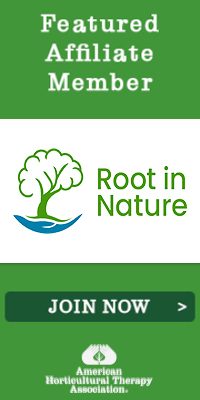Course Titles/Content that Support the AHTA Core Curriculum Topic Areas
If you attended an educational institution that was on a quarter system as opposed to a semester system you can use those credits but, you must convert those quarter credits to the equivalent semester credits. You may find that you may need additional courses to fulfill the total credit hour or content requirement in each subject area. Reference the quarter hour to semester hour conversion table to convert your credits.
Course descriptions and titles that fulfill the required core curriculum courses plus one elective in Plant Science:
| AHTA Course Title |
Course Content must include: |
Example of Course Titles |
| Introduction to Horticulture |
- Introduction to horticultural crops,
- Understanding of environmental factors involved in production of horticultural crops,
- Overview of plant science,
- Horticultural practices,
- Careers in horticulture
|
- Introduction to Horticulture
- Horticulture Science
- General Horticulture
|
| Plant Propagation |
- Overview of the techniques,
- Materials, and conditions necessary for plant propagation of the vegetative and sexual reproduction of herbaceous, woody, greenhouse, and interior foliage plants.
|
- Plant Propagation
- Plant Propagation Methods
- Principles of Plant Growth, Plant Propagation, and Development
|
| Pest and Disease Plant Management |
- Overview of the identification, diagnosis, and treatment of common pests and disease of horticultural crops,
- How to analyze symptoms,
- A discussion of treatment options,
- Cultural and preventive practices.
|
- Integrated Pest Management
- Pest Management Principles and Practices
- Pest and Disease Plant Management
|
| Electives |
| General Plant Pathology |
- Introduction to organisms and environmental conditions that cause plant disease,
- The methods and interactions between plants and the disease causing agent,
- The role of plant disease in plant production
|
- General Plant Pathology
- Introduction to Plant Pathology
- Plant Pathology
|
| Greenhouse or Nursery Production/Management |
- Management and production of foliage and floral crops in the field or greenhouse,
- Environmental controls,
- Cultural production,
- An overview of different crops grown in the greenhouse.
|
- Greenhouse Management
- Nursery and Greenhouse Management
- Nursery and Greenhouse Operations
|
| Landscape Design |
- Introduction to
- Landscape design elements,
- Site analysis,
- Practical solutions to landscape problems, and
- May include the construction of landscape structures, turf management, and irrigation systems.
|
- Introduction to Landscape Design
- Landscape Design Techniques
- Landscape Construction and Design
|
| Plant Materials |
- Overview of trees, shrubs, and groundcovers used in the landscape,
- Identification of materials through form, color, texture, and habitat, and
- The uses for plant materials in the landscape design.
|
- Landscape Plant Materials
- Herbaceous Plant Materials
- Plant Materials
|
| Soils |
- Introduction to soil characteristics and their relationship to plant growth,
- the biological, chemical, and physical processes which occur in soil,
- soil management,
- conservation of soils as natural bodies in the environment.
|
- Soil Science
- Fundamentals of Soil Science
- Principles of Soil Science
|
Course titles that fulfill the required core curriculum courses plus one elective in Human Science
| AHTA Course Title |
Course Content to include |
Example of Course Titles |
| General Psychology |
- Introduction to the traditional theories of psychology,
- The biological bases of behavior, development, learning, personality, cognition, perception, motivation, behavior disorders,
- Social psychology
|
- Introductory Psychology
- General Psychology
- The Science of Psychology
|
| Abnormal Psychology |
- Study of human behavioral disorders,
- The history, theories, etiology, assessment, diagnosis, treatment, and system of classification of psychological disorders.
|
- Abnormal Psychology
- Abnormal Behavior
- Introduction to Abnormal Psychology
|
| Human Lifespan Development |
- Overview of the major developmental theories in relationship to the social, emotional, cognitive and physical development of an individual from birth to end of life
|
- Human Growth and Development
- Human Development Across the Lifespan
- Human Life Span Development
|
| Electives |
| Counseling Theories |
- Overview of the major theories in the field of counseling from theoretical, personal, functional and philosophical perspectives,
- Provides an introduction to basic counseling techniques.
|
- Foundations of Mental Health Counseling
- Counseling Theories and Practice
- Introduction to Counseling Theories
|
| Aspects of Disabilities and Illnesses |
- Introduction to the historical context of disability and society,
- Introduction to the psychological and social aspects of various types of physical, mental and social disabilities,
- May cover aspects of universal design.
|
- Psycho-Social Aspects of Disability
- Adults with Disabilities
- Medical Aspects of Disability
|
| Group Dynamics |
- Overview of the dynamics and major approaches to group counseling, leadership styles
- Leading groups effectively, group membership, and the different types of groups.
|
- Introduction to Group Dynamics
- Group Dynamics
- Group Counseling Theories and Procedures
|
| Principles of Therapy |
- Introduction to
- Effective communication skills,
- Core counseling techniques,
- The theory of counseling interventions, and
- May include role playing, videotaping, and situational interviewing.
|
- Interviewing and Counseling Skills
- Counseling Techniques
- Introduction to Counseling Theory and Practice
|
| Human Anatomy/Physiology |
- The organization of the human body,
- How the body functions,
- Anatomical terminology,
- The body’s organs and systems, and
- May include an overview of human disease.
|
- Anatomy and Physiology
- Human Anatomy
- Introduction to Anatomy & Physiology
|
| Adult Development and Aging |
- Overview of theory in relationship to adult development and aging,
- The stages of adulthood through aging and end of life, and
- May include an overview of disease related to aging.
|
- Psychosocial Aspects of Aging
- Psychology of Aging
- The Psychology of Adulthood and Aging
|
Horticultural Therapy Course Content
Horticultural therapy coursework completed as an independent study is required to cover the content areas as defined. The following subject areas do not represent actual course titles. A course may include additional topic areas.
The AHTA website lists colleges and universities that offer horticultural therapy as a degree option and lists AHTA accredited horticultural therapy certificate programs.
| AHTA Subject Area |
Course Content to include |
Example of Course Titles |
| Overview of the profession |
- Definition of horticultural therapy
- History of horticultural therapy
- Program types – horticultural therapy and therapeutic horticulture
- Introduction to the American Horticultural Therapy Association
- AHTA Code of Ethics and AHTA Standards of Practice
- Brief overview of the professional registration process
|
|
| Disability groups, characteristics, and considerations |
- Psychological (e.g., mental illness, substance use, attention deficit)
- Physical (e.g., spinal injury, orthopedic, cerebral palsy)
- Sensory (e.g., vision, hearing, sensory processing)
- Developmental (e.g., intellectual, autism, Down syndrome)
- Disease (e.g., cancer, dementia, stroke)
|
|
| Program materials, tools, and techniques |
- Client assessment, evaluation, and documentation
- Goals and objectives for horticultural therapy clients
- Horticultural activities and activity modification
- Plant materials for horticultural therapy programs
- Adaptive tools, equipment, and devices
- Accessible indoor/outdoor horticultural therapy area (including consultation, site assessment, installation, utilization, and evaluation)
- Therapeutic garden characteristics and universal design
|
|
Program management
|
- Short- and long-term program plans
- Horticultural therapy program proposals
- Program budgets
- Horticultural therapist role in multi-disciplinary team
- Volunteer resources and management
- Program promotion
- Funding resources, grants, and funding proposals
- Horticultural therapy research methods, evaluation, and outcomes
|
|
|




